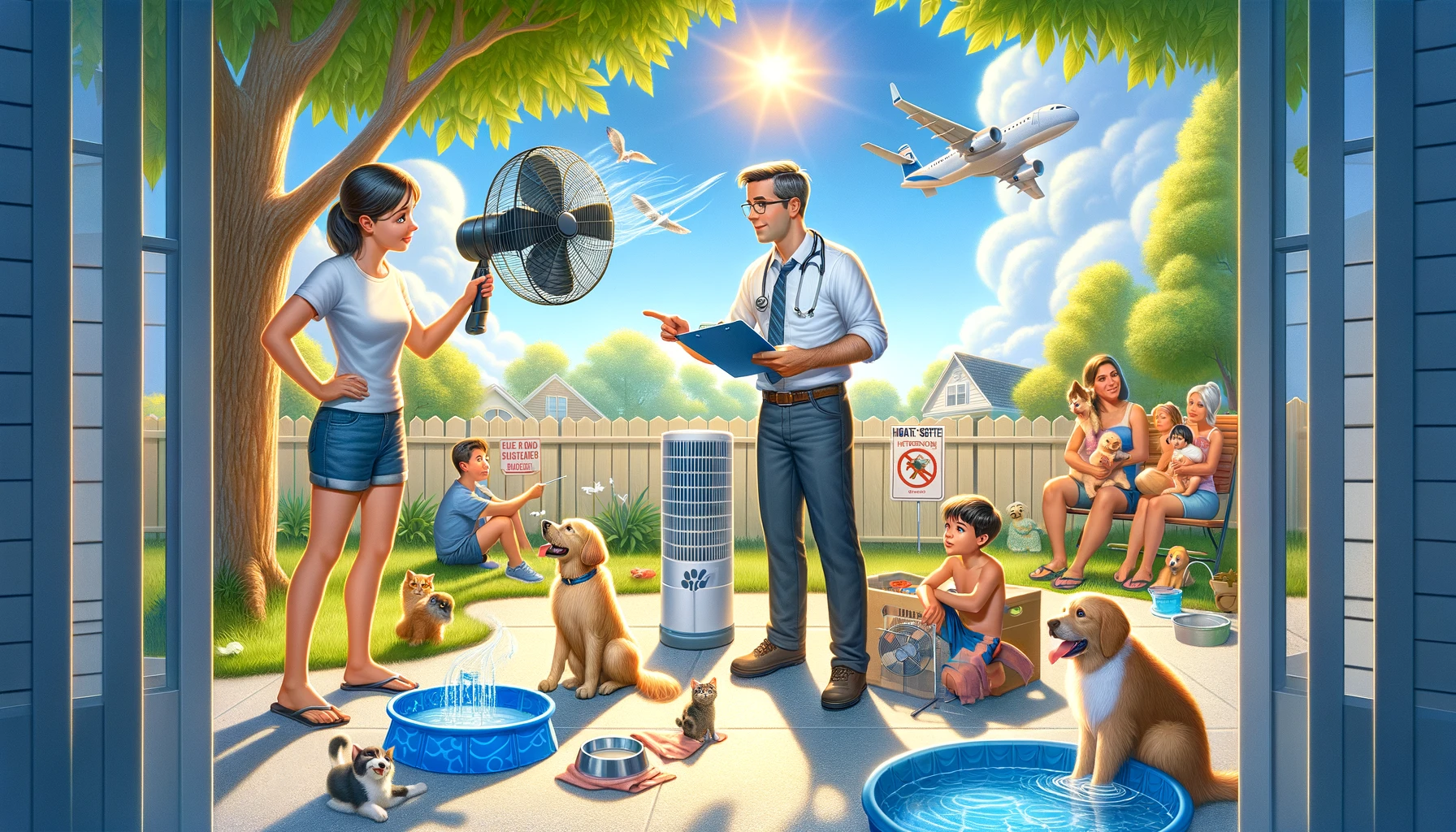About Us
Contact Us
Advertise With Us
Disclaimer
Privacy Policy
Terms & Conditions
Copyright © 2024 - BoldDiscussions.com

As we navigate through the sweltering summer, the safety of our furry friends during extreme heat becomes a paramount concern. Dr. José Arce, a leading authority from the American Veterinary Medical Association (AVMA), sheds light on this critical issue, offering invaluable advice to pet owners on safeguarding their pets against the dangers of heat-related illnesses.
The recent surge in global temperatures has set off alarms about the well-being of our pets. Dr. Arce emphasizes, "When you're feeling hot, chances are your pet is feeling even hotter." This stark reality underscores the vulnerability of our pets to the adverse effects of heat, including the risk of heat exhaustion and potentially fatal heat stroke.
Dr. Arce urges pet owners to be vigilant for symptoms indicative of heat exhaustion in pets, such as anxiety, excessive panting or drooling, vomiting, altered gum color, or signs of physical distress. Notably, cats displaying open-mouth breathing signal a dire emergency requiring immediate veterinary attention.
Highlighting the severity of heat stroke, Dr. Arce reminds us, "Heat stroke is a serious threat that can lead to death." This alarming statement is a call to action for pet owners to practice caution and care during hot weather.
To avert the dangers of heat, Dr. Arce advises ensuring constant access to fresh water, providing shade and a cool indoor environment for your pets. Limiting outdoor activities to the cooler parts of the day and avoiding hot surfaces can protect your pets from the heat. He strongly cautions against leaving pets in cars, where temperatures can skyrocket, posing a fatal risk to animals.
Dr. Arce points out that the impact of heat varies among pets, influenced by factors such as age, weight, health conditions, and breed. Special attention should be given to pets more susceptible to heat, including those with certain physical characteristics or medical conditions.
The conversation on pet safety extends beyond heat stroke to include the risk of sunburns. Pets, especially those with certain coat types or skin pigmentation, can suffer from sunburn, potentially leading to more serious health issues. Dr. Arce advocates for the use of pet-specific sunscreen to protect vulnerable animals from the harmful effects of the sun.
The guidance from Dr. Arce is a testament to the importance of proactive measures in ensuring the well-being of our pets during hot weather. By adhering to these expert recommendations, pet owners can help prevent heat-related illnesses, ensuring a safe and enjoyable summer for their beloved animal companions. Stay informed, stay vigilant, and let's make this summer a safe one for all our furry friends.
Disclaimer.
This article provides information only and should not be construed as advice. It is provided without warranty of any kind. Also please note that content on this platform may be subject to copyrighted material. If you believe we have used your content in any way then please get in touch with us. We will take down your content immediately.
Share This Post





BOLDDISCUSSIONS
We Produce Content That informs, Educates And Entertains People Around The World to stay updated on every topic with confidence.
Copyright © 2024 – BoldDiscussions.com

